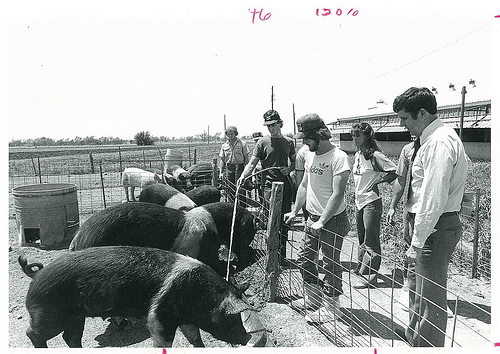On Friday, the Optimist featured a tabloid insert documenting the past, present and future of the Department of Agriculture and Environmental Science.
Some questions may have been raised, like ‘Why did we spend the time and money on an extra eight-page tabloid on one department?’ or ‘Why haven’t other departments that have been closed seen a similar amount of coverage?’
As journalists, we spend a lot of time on what’s happening right this very second. But another part of our job that often gets pushed aside when deadlines approach is historical documentation.
Reading newspapers or stories from specific dates and times can give us the best snapshot of specific moments of time. From the quotes that people say on any given day to the way stories unfold over a series of weeks provide insight of a year or an era that history textbooks can’t.
Not only were similar newspaper clippings essential in the creation of our ag feature, but we hope that someday, when a student or prospective searches for a school with a Christian agriculture program, they can read our story and see why ACU no longer has one, as well as what the closed program once meant to our university.
Well, quite frankly, it has meant a lot. For decades, it was the identity-significant portion of the student body. Being located in rural West Texs and bringing in students from even more remote areas guaranteed a population of students who identified with agriculture and in turn, made ACU do the same.
We couldn’t have written a similar piece when the home economics department was closed years ago, or when the computer science department was closed in the ’80s. Not because they weren’t an important part of ACU, but because they didn’t have the stories and the history that the ag department did.
The ag department was instrumental in the growth and formation of our university, and for that we commemorated its history on Friday.
If you missed the feature in Friday’s paper, be sure to check out www.ag.acuoptimist.com.

